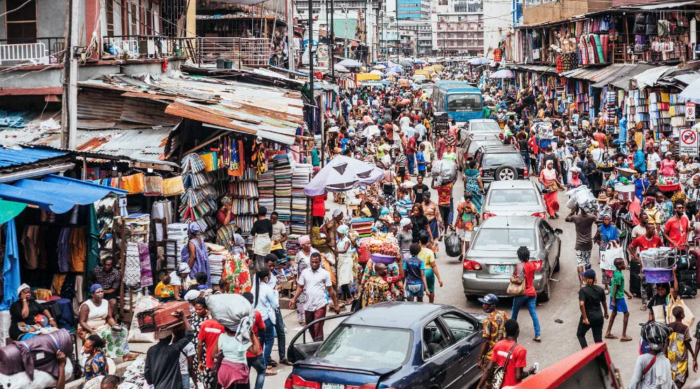How USAID is Advancing Low-Carbon and Climate-Resilient Solutions in Cities

Cities are on the frontline of the climate crisis–both experiencing severe climate impacts and leading on ambitious solutions to protect communities and reduce greenhouse gas emissions. Cities in developing countries face development and environmental challenges like pollution, limited access to financing, food and water insecurity, inadequate infrastructure, and social and economic inequity, among others. Cities also are experiencing rapid growth and increased migration, often resulting from internal displacement.
Despite these challenges, cities are dynamic engines of economic growth and innovation and are well-placed to implement climate actions since they are the closest to the people and have the best information on the specific realities and needs of communities. USAID is working with local communities to tackle these challenges so that all people, especially the most marginalized populations, can prosper in urban environments. Learn more about USAID’s work to help cities prepare for climate impacts and foster resilient urbanization below.
Preparing Cities for Growing Climate-Related Migration
The world is experiencing record levels of migration, with urban areas being the primary destinations. Climate-related disasters such as storms and floods, as well as longer-term stresses like higher temperatures, sea level rise, and drought, can damage livelihoods and critical infrastructure, and push people to seek better locations to live. Most of the migration related to climate change occurs from rural to urban areas within the same country. For municipal leaders and communities in USAID partner countries, this trend presents both challenges and opportunities. A lack of preparation for the growth in migration to increasingly crowded cities will worsen existing social, economic, and environmental stresses. Experience suggests, however, that if planned for and managed well, migration can benefit migrants and receiving communities. For example, migrants can have opportunities for increased income and skills, and find greater access to services, but these benefits are not granted to all urban residents equally or automatically. Cities that proactively provide social services and economic opportunities to migrants and existing receiving communities, can grow their economic base and improve development outcomes beyond migrant populations.

A coordinated response to climate-related migration is a critical part of USAID’s commitment to climate action, as noted in the Agency’s Climate Strategy, which emphasizes research and analytics, program responses, and attention to migration-affected populations. Read more on Urbanlinks.
Improving Air Quality in Vietnam’s Cities through USAID’s Reducing Pollution Project
Air pollution contributes directly to climate change, and the causes of both crises are often the same. Air pollution in Vietnam is responsible for over 60,000 deaths each year. The health burdens from air pollution are rising at an alarming rate, threatening both people’s health and the national economy. Hanoi and Ho Chi Minh City are regularly listed among cities with the world’s worst air pollution, with air quality indices hovering at “unhealthy” or even “hazardous” levels. Industrial emissions, coal, waste combustion, and the steadily increasing number of vehicles are among the main causes of air pollution countrywide.

Through the USAID Reducing Pollution project, government, local nongovernmental organizations (NGOs), and private sector partners are addressing multiple sources of air pollution, including pollutants from transportation, open burning of household wastes and agricultural by-products, and emissions from village industries. By working with local communities, USAID is collaborating on a wide range of activities to improve air quality in Vietnam’s cities and beyond–from supporting policy instruments that promote the reduction of plastic pollution and the sustainable management of municipal solid waste to providing grants to Vietnamese NGOs to develop collective impact initiatives. Read more.
Financing Sustainable Transportation: How the Cities Finance Facility Contributed to Bogotá´s Bike Sharing System
USAID is working with local governments to implement climate-smart planning and invest in blended sources of urban climate finance, such as in Bogotá, Colombia, where USAID-supported C40 Cities Finance Facility (CFF) helped establish a bike sharing system. The CFF expects to have leveraged over $1 billion in climate finance by 2025 and reduced or avoided 7.5 million tons of greenhouse gas emissions by 2050.
The city’s bike sharing system covers an impressive area of 27 square kilometers with 3,000 bikes. Bike sharing systems play a pivotal role in promoting sustainable transportation within cities, especially in regions where the demand for innovative mobility options is pressing. Some Latin American countries have witnessed a significant surge in the popularity of biking as a viable transportation method, making bike sharing systems all the more appealing. This groundbreaking project serves as the initial phase of a larger national cluster encompassing the cities of Bogotá, Bucaramanga, Montería, and Cali, with a projected monthly user base of 81,000 individuals.

This project also has a strong equity and inclusion focus, particularly around gender equity. The CFF and involved cities conducted gender analyses to inform technical aspects of the bike sharing system like the ideal weight, size, and design of bicycles, as well as to understand gender-specific travel patterns and purposes. The CFF team emphasized the importance of incorporating hand bikes, baskets, child seats, and cargo bikes in the Bogotá project to cater to care-related journeys for women, showcasing the city’s commitment to sustainable and accessible urban mobility.
The CFF is implemented by Deutsche Gesellschaft für Internationale Zusammenarbeit (GIZ) GmbH and the C40 Cities Climate Leadership Group, and financed by USAID together with the governments of Germany, France, and the UK. It supports cities across Asia, Africa, and Latin America in preparing and unlocking finance for sustainable urban infrastructure projects. Read more.
Climatelinks is USAID’s global knowledge portal for climate and development practitioners. Climatelinks curates and archives technical guidance, events, blogs, photos, and other knowledge related to USAID’s work to help countries mitigate and adapt to climate change.
This blog was originally posted on Climatelinks as a collaboration during COP28.

About the Author
Kasandra Richardson is a Communications Specialist on USAID’s Advancing Capacity for the Environment (ACE) project. In this role, she supports communications for USAID’s work on energy, infrastructure, and urban environmental issues. Kasandra has a Bachelor’s in Environmental Management and a Master’s in Environmental Policy and Natural Resource Management from Indiana University.

